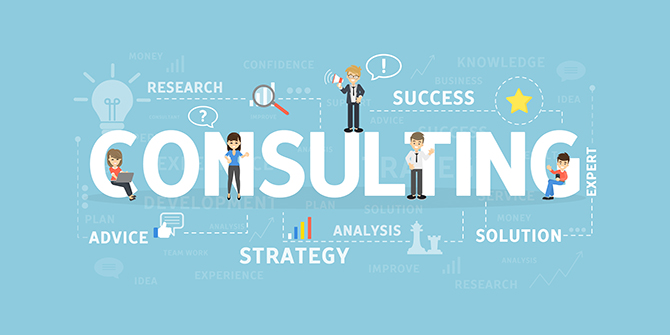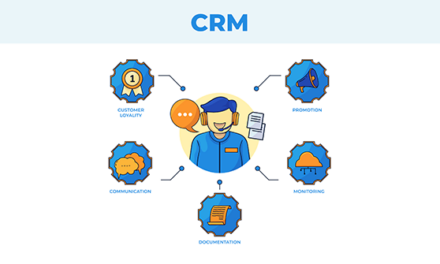Key Takeaways
- Consulting skills refer to the specific abilities as well as qualities that allow consultants to excel in their work, from communication and problem-solving to project management and leadership.
- A good consultant possesses a unique combination of technical as well as soft skills, continuously learns and adapts to industry changes, builds strong relationships, and has a genuine passion for their work.
- Management consulting skills are essential for providing strategic advice and guidance to organizations.
- The top consulting skills that a consultant should have include communication, problem-solving, critical thinking, analytical, interpersonal, observation, time management, adaptability, project management, leadership, and many more.
Are you considering a career in consulting or already working as a consultant?
Do you have what it takes to be successful in this fast-paced and ever-changing industry?
As a consultant, you need to be a jack-of-all-trades, possessing a diverse set of skills that can be applied to a variety of business challenges.
You need to be a detective, a problem-solver, a communicator, and a trusted advisor all rolled into one.
In short, you need to be a master of the top consulting skills that can take your career to the next level.
So, what exactly are consulting skills?
Consulting is about providing expert advice and guidance to clients to help them solve problems and achieve their goals.
Consulting skills, therefore, refer to the specific abilities as well as qualities that allow consultants to excel in their work, from communication and problem-solving to project management and leadership.
In this article, we’ll explore the top consulting skills every consultant should have in their toolkit and provide tips for developing and honing these skills to become a top-performing consultant.
So, buckle up and get ready to learn the top consulting skills that can help you succeed in this dynamic industry!
What makes a good consultant?
Being a successful consultant goes beyond just having expertise in a specific field. Instead, a good consultant possesses unique technical and soft skills that make them effective in their role.
Here are some factors that contribute to making a good consultant:
Combination of technical and soft skills
A good consultant must possess a combination of technical and soft skills to excel in their job.
Technical skills include knowledge of specific tools, techniques, and methods, while soft skills include communication, problem-solving, and critical thinking skills.
Continuous learning
The consulting industry constantly evolves, and a consultant must stay up to date with the latest industry trends and developments.
By continuously learning, a consultant can provide innovative solutions to their clients and remain a valuable asset to their organization.
Building strong relationships
Building strong relationships with prospects is essential for a consultant’s success.
A consultant can better understand their prospect’s needs to provide tailored solutions by establishing trust and maintaining effective communication.
Passion for the work
Good consultants have a genuine passion for their work and are committed to providing high-quality service to their clients.
They will go above and beyond to ensure their prospect’s satisfaction.
Exploring the realm of consulting, one may wonder about the essence of a successful consultant and the myriad areas of consulting.
The journey from being curious about how to be good at consulting to mastering the consulting expertise involves understanding the critical roles consultants play and the skills you need to fill them.
This journey is not without its challenges, as many ask, “is consulting hard?”
The answer lies in acquiring the right consulting competencies and embracing the consultancy role with dedication.
What are management consulting skills?

Management consulting skills are a set of abilities that consultants use to advise and guide organizations on improving their performance, operations, and profitability.
These skills are crucial for consultants who work with clients in various industries, including finance, healthcare, technology, and manufacturing.
These skills are necessary for consultants to provide effective guidance and support to their clients.
To succeed in the consulting industry, consultants must understand management consulting skills and how to apply them in real-world situations.
Different types of consulting skills
1. Communication skills
Communication skills are essential for consultants, as they need to clearly and effectively communicate with their clients and colleagues.
Strong communication skills help build relationships with clients, manage their expectations, and present ideas along with recommendations.
2. Problem-solving skills
Consultants are often hired to solve complex problems that an organization is facing.
To be effective in their role, consultants need to have strong problem-solving skills that help them identify a problem’s root cause and develop practical solutions.
3. Critical thinking skills
Critical thinking skills are essential for consultants as they help them to evaluate information, analyze data, and make informed decisions.
They need to be able to identify patterns, draw conclusions, and provide recommendations based on their findings.
4. Analytical skills
Strong analytical skills are necessary for consultants as they need to be able to collect and analyze data to identify key insights and trends.
They need to be able to work with large data sets and use statistical tools to draw conclusions.
5. Interpersonal skills
Interpersonal skills are important for consultants as they need to be able to build strong relationships with clients, understand their needs and expectations, and communicate effectively with them.
They need to be able to work collaboratively with colleagues and stakeholders across different levels of an organization.
6. Observation skills
Observation skills are important for consultants as they need to be able to observe and analyze processes, systems, and behaviors to identify areas for improvement.
They need to be able to identify inefficiencies as well as gaps in processes and provide recommendations for improvement.
7. Time management skills
Consultants often work on multiple projects and with different clients simultaneously. Therefore, they need to have strong time management skills to manage their workload effectively and meet project deadlines.
Consultants can use time management tools that helps to manage skills and increase their productivity.
8. Adaptability
Consultants need to be adaptable and flexible as they often work in rapidly changing environments.
They need to be able to adjust their approach to different situations and be comfortable with uncertainty.
9. Project management skills
Project management skills involve planning, organizing, and managing resources to complete a project within a specific timeline and budget successfully.
It includes task management, risk assessment, team coordination, and communication skills.
In addition, effective project management skills are crucial for ensuring a project is completed efficiently and successfully.
10. Leadership skills
Leadership skills include communicating effectively, making decisions, delegating tasks, and providing feedback.
A consultant with strong leadership skills can build and lead a high-performing team, foster a positive work culture, and drive successful project outcomes.
11. Sales skills
Sales skills are a set of abilities that enable consultants to persuade potential clients or customers to engage with their services or products.
The consultant needs to identify potential clients or customers, develop a strong understanding of their needs and wants, and present their services or products that align with the client’s goals and objectives.
12. Negotiation skills
A consultant with strong negotiation skills can successfully navigate complex negotiations, build rapport with prospects and stakeholders, which help prospects to achieve their goals.
Effective negotiation requires a deep understanding of the client’s needs and the ability to identify common ground and generate creative solutions that meet the needs of all parties involved.
13. Conflict resolution skills
Consultants need to be able to resolve conflicts effectively, whether they are conflicts between team members or with clients.
They need to be able to listen to different perspectives, find common ground, and work toward a resolution that benefits all parties.
14. Teamwork skills
Consultants often work as part of a team, so having strong teamwork skills is essential.
To work together and accomplish a shared objective, they must be able to successfully communicate, delegate tasks, and collaborate.
15. Emotional intelligence
Emotional intelligence refers to the ability to recognize and manage one’s own emotions, as well as the emotions of others.
It’s an important skill for consultants to have as they work with clients and team members from different backgrounds and personalities.
16. Networking skills
Consultants need to have strong networking skills to be able to build relationships with potential clients and partners.
They need to be able to attend industry events, build their personal brand, and promote their services.
17. Collaboration skills
Collaboration skills refer to the ability to work with others to achieve a common goal.
Consultants need to be able to work with clients, team members, and other stakeholders to deliver successful projects.
18. Influence and persuasion skills
Consultants should be able to influence and persuade to prospects as well as team members to achieve desired outcomes.
This skill involves being able to present ideas in a compelling way and effectively negotiate with others.
19. Creativity and innovation
Creativity and innovation involve thinking outside the box, challenging assumptions, and taking calculated risks.
These skills are important in consulting as consultants are often hired to solve complex problems and find innovative solutions for their clients.
Having creativity and innovation skills allows consultants to come up with fresh and effective ideas that can positively impact their prospect’s businesses.
20. Presentation skills
Presentation skills refer to the ability to deliver engaging and effective presentations in front of an audience.
It includes developing content that is clear, concise, and relevant to the audience, using effective delivery techniques such as body language, tone of voice, and utilizing visual aids to enhance the message.
Good presentation skills are valuable in many professional settings, including sales, education, and public speaking.
21. Marketing and branding skills
Consultants require skills in branding, marketing, customer understanding, and creating compelling marketing content like proposals and presentations.
They must possess skills to create a distinct brand image, develop marketing plans, understand customer needs, and produce effective marketing content.
Effective marketing and branding skills help consultants differentiate themselves from competitors, build brand recognition, and ultimately attract and retain clients.
22. Change management skills
Consultants often work with clients who are undergoing significant changes, such as mergers, acquisitions, or restructuring.
Therefore, having change management skills is crucial for consultants to help their clients navigate these transitions successfully.
23. Independence skills
Independence skills refer to a consultant’s ability to work independently without constant supervision or guidance.
It involves taking responsibility for one’s work, making decisions confidently, and proactively identifying and solving problems.
These skills are crucial for consultants as they often work on multiple projects simultaneously to manage their time and resources effectively.
24. Active listening skills
Active listening skills involve paying attention to not just the words being spoken, but also the speaker’s tone, body language, and emotions.
It allows consultants to gather accurate information and build rapport with their clients, which in turn helps them to provide effective solutions to the client’s problems.
25. Risk management skills
Risk management skills are essential for consultants as they help identify potential risks and develop strategies to mitigate or avoid them. It involves understanding the likelihood and impact of risks, analyzing potential consequences, and developing plans to minimize their impact.
By effectively managing risks, consultants can help organizations achieve their goals while minimizing potential negative outcomes.
How to improve your consulting skills?

To become a successful consultant, continuously improving and developing consulting skills is essential.
Here are some ways to improve consulting skills:
Identifying strengths and weaknesses
To improve consulting skills, it is important to identify areas where you excel as well as areas where you need improvement.
By doing a self-assessment or getting feedback from others, you can better understand your skills and areas that require more attention.
Seeking feedback and mentorship
Feedback and mentorship can be invaluable for improving consulting skills.
A mentor can provide guidance, support, and advice for your professional growth, while feedback from colleagues and clients can help you identify areas for improvement.
Pursuing continuous learning and professional development
Continuous learning and professional development are essential for keeping up with industry trends and expanding your knowledge base.
Attending workshops, conferences, and taking relevant courses can help you stay ahead of the curve.
Practicing active listening and effective communication
Active listening means attentively listening to the prospects, understanding their needs as well as concerns, and responding to them concisely.
Effective communication involves conveying ideas, recommendations, and strategies clearly and efficiently to the clients. Both skills enable consultants to establish trust, build stronger relationships, and achieve successful outcomes for their clients.
Building strong relationships with clients and colleagues
By building trust with clients, consultants can establish long-term relationships that result in repeat business and referrals. Consultants must be able to work effectively with colleagues in order to share knowledge, leverage expertise, and deliver high-quality work.
Additionally, a positive work environment built on strong relationships can lead to increased productivity, engagement, and job satisfaction.
Improving your consulting skills is a continuous journey. Whether it’s through consulting skills training or learning from leading consulting firms, the goal is to enhance your consulting description and consulting role.
For those wondering how to become a strategy consultant or how to get into management consulting, the key lies in relentless learning and practical application.
Embrace every opportunity to learn consulting, from attending workshops to engaging in consulting activities, as each experience enriches your consulting expertise.
How to apply consulting skills in the workplace?
Applying consulting skills in the workplace involves a structured approach to problem-solving and delivering recommendations.
Here are some key steps:
Understanding the needs of the client or organization
As a consultant, it’s crucial to deeply understand the prospect or organization you’re working with.
It means understanding their industry, challenges, goals, values, and culture. By doing so, you can tailor your approach to their specific needs and offer the best solutions.
Defining the problem and establishing clear goals
One of the first steps in any consulting engagement is defining the problem that needs to be solved.
It involves understanding the root causes of the problem, identifying the stakeholders involved, and establishing clear goals and objectives for the project.
By doing so, you can ensure that everyone is on the same page and working towards a common goal.
Conducting research and analysis
Once the problem has been defined, it’s important to conduct the research and analysis to identify potential solutions.
It involves gathering data, analyzing it, and drawing conclusions. Therefore, the research and analysis phase are critical to develop effective recommendations.
Developing and presenting recommendations
After conducting research and analysis, the consultant should develop a set of recommendations that address the problem and meet the goals as well as objectives established earlier.
These recommendations should be clear, concise, and actionable. It’s also important to present the recommendations in a way that’s easy for the client or organization to understand and implement.
Implementing solutions and measuring results
Once the client or organization has accepted the recommendations, it’s time to implement the solutions.
The consultant should work closely with the client or organization to ensure that the solutions are being implemented effectively and that any issues or challenges are being addressed.
Communicating and collaborating with stakeholders
Throughout the consulting engagement, it’s important to maintain open lines of communication with all stakeholders involved in the project.
It includes the client or organization, other consultants or team members, and any external stakeholders.
By doing so, the consultant can ensure that everyone is working towards the same goals and any issues or challenges are being addressed in a timely manner.
Managing projects and resources effectively
As a consultant, it’s important to manage projects and resources effectively to ensure that the project stays on track and within budget.
It involves developing and managing project plans, delegating tasks to team members, monitoring progress, and adjusting as needed.
Effective project management is essential to delivering successful consulting engagements.
Applying your consulting skills in real-world scenarios, from strategic consulting to HR consulting skills, demands a nuanced understanding of your consulting environment.
Successful consultants are those who can navigate the complexities of their consulting fields, whether in marketing consultant skills or the broad spectrum of business consulting careers.
Remember, a career in management consulting or any consulting profession is about delivering massive value, leveraging your rare and valuable skills, and continuously refining your consultant strategy to meet the evolving needs of your clients.
Conclusion
Finally, as the consulting landscape continues to evolve, so does the consultant’s role and the skills required to be a consultant.
The journey from asking “should I go into consulting?” to becoming a successful consultant involves continuous learning, skill development, and adapting to the ever-changing business environment.
Consulting is not just a job; it’s a profession that enables you to offer essential consulting services that can transform businesses.
With the right consulting competency framework, consulting basics, and a commitment to delivering massive value, your career in consulting can be both fulfilling and impactful.
Remember, the path to becoming a top consultant starts with understanding the core consult principles, developing a robust consulting skillset, and always striving to provide innovative solutions to your clients.




